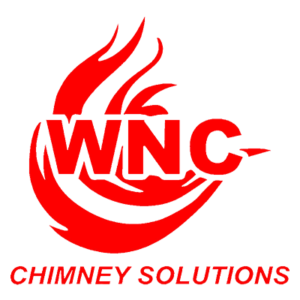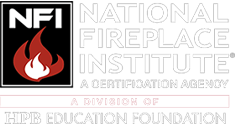Welcome to your new home in the beautiful Western North Carolina (WNC) region! Whether you’re already an Asheville local or are just settling in, it’s essential to stay on top of home maintenance. This will help to protect your investment and ensure your home remains in top condition for when you sell in the future. This guide provides detailed information on various aspects of home maintenance specific to the Asheville area, including a full cost breakdown on tree care, moisture control, roof and gutter upkeep, HVAC maintenance, pest control, and plumbing. Let’s jump in!
Tree Maintenance in Asheville
Asheville’s lush greenery is stunning but requires regular upkeep to prevent damage to your home. Common tree species like oak, pine, and maple need seasonal pruning to prevent overgrowth and maintain health. Regular tree maintenance helps prevent potential damage to your home from falling branches, particularly during stormy weather. Pests such as the hemlock woolly adelgid and the emerald ash borer, can cause significant damage to local trees often requiring arborists to fully remove the dead tree. According to the International Society of Arboriculture, regular tree pruning can prevent potential hazards and save homeowners significant costs in damage repairs.
It’s recommended to hire a professional arborist certified in North Carolina for tasks such as:
- Seasonal pruning
- Disease and pest inspection
- Removal of dead or hazardous limbs
View the list for top 10 arborists in the Asheville region for 2024 here.
Roof and Gutter Maintenance
Maintaining your roof and gutters is crucial to prevent water damage and ensure the longevity of your home. Regular inspections + cleanings are necessary to keep your Asheville home in optimal condition. Here’s what you need to do:
- Inspect and clean gutters at least twice a year
- Check for and repair any roof damage, such as missing or broken shingles
- Install chimney rain caps to prevent water and leaves from entering the chimney
- Consider installing gutter guards to prevent the build-up of leaves and debris.
Chimney Rain Caps
The National Roofing Contractors Association highlights that regular roof maintenance can extend the life of your roof by up to 50%. WNC Chimney offers professional installation of chimney rain caps, which provide excellent protection against water and debris. Our high-quality rain caps are designed to fit various chimney sizes and styles, ensuring your chimney stays clear and functional.
Moisture and Mold Prevention
Asheville experiences high humidity during the summer months, making moisture control essential to prevent mold growth throughout the house. WNC homeowners should take the following steps to maintain a dry and mold free environment:
- Install dehumidifiers in basements and crawl spaces
- Ensure proper ventilation in bathrooms and kitchens
- Regularly inspect and repair any water leaks
- Use mold-resistant paint in areas prone to moisture
The EPA emphasizes that moisture control is the key to mold control and can prevent costly repairs and health issues. Mold specialsts are experts are sealing your crawlspace to prevent water damage and ensure the house is properly ventilated. View the list for top 10 mold removal specialists in the Asheville region for 2024.
Annual Chimney Sweep/Inspection
Regular chimney maintenance is crucial for preventing fire hazards and ensuring efficient operation of your Asheville home. Particularly if you use a wood-burning fireplace, but gas fireplaces should also be inspected and serviced once per year. Annual chimney sweeps and inspections can identify and remove soot, blockages, and creosote buildup.
Key steps include:
- Scheduling an annual chimney sweep
- Having a professional inspect for cracks, blockages, and other issues
- Ensuring the chimney cap is intact and functional to prevent debris from falling in.
The Chimney Safety Institute of America recommends annual chimney inspections and sweeps to prevent chimney fires and costly repairs, emphasizing that proper maintenance can save homeowners significant money and enhance safety by preventing home fires.
HVAC & Dryer Vent Maintenance
Ensuring your heating, ventilation, and air conditioning (HVAC) system is well-maintained is essential for comfort and energy efficiency, especially with Asheville’s variable climate. According to Energy Star, properly maintaining your HVAC system can reduce energy bills by up to 15%.
Regular HVAC maintenance includes:
- Changing air filters every 1-3 months
- Scheduling professional inspections and tune-ups twice a year
- Cleaning and clearing debris from outdoor units
- Checking and sealing ductwork to prevent leaks
- Dryer vent cleaning every 1-3 years
Animal & Pest Control
Asheville’s wooded environment can attract various pests, making pest control a necessary aspect of home maintenance. The National Pest Management Association states that regular pest control can prevent structural damage that costs U.S. homeowners $5 billion annually. Effective pest control involves:
- Regularly inspecting and sealing cracks and openings
- Keeping the home clean and free of food debris
- Using natural or professional pest control treatments
- Ensuring proper yard maintenance to reduce habitats for pests
In addition to common pests like termites, ants, and rodents, Asheville homeowners should be aware of local black bears. Black bears have even been found building nests underneath homes in Asheville and are often found breaking into trash cans. These bears are attracted to unsecured trash and food sources, so it’s important to:
- Use bear-proof trash cans
- Securely store all food and garbage inside your home or in bear-proof containers
- Clean and remove bird feeders during bear activity seasons
Plumbing Maintenance
Proper plumbing maintenance helps prevent leaks, water damage, and costly repairs. The EPA states that fixing easily corrected household water leaks can save homeowners about 10% on their water bills. Key plumbing maintenance tasks include:
- Annual inspection of pipes and fixtures to check for leaks
- Insulating pipes to prevent freezing during winter
- Flushing the water heater to remove sediment buildup
- Checking water pressure and ensuring it’s within safe limits
View the list for top 10 plumbers in the Asheville region for 2024 here.
Annual Maintenance Costs Overview
| Service | Cost Range |
|---|---|
| Tree Maintenance | $200 – $800 |
| Dehumidifier Installation | $250 – $1,500 |
| Dryer Vent Service | $250-$300 |
| Roof Inspection and Repair | $150 – $500 |
| Gutter Cleaning | $100 – $300 |
| Annual Chimney Sweep | $100 – $400 |
| HVAC Maintenance | $70 – $200/visit |
| Pest Control | $100 – $300/visit |
| Plumbing Maintenance | $175 – $500 |
By following this Asheville Home Maintenance Guide, new homeowners can ensure their property remains in excellent condition, enhancing its value and comfort. It’s also crucial to be aware of unexpected costs such as appliance repairs, landscaping, and emergency services that can arise. For a deeper understanding of the costs associated with owning versus renting a home, check out this article here. For more information on chimney rain caps, dryer vent cleaning, chimney sweeps and other services call WNC Chimney at (828) 400-6253






